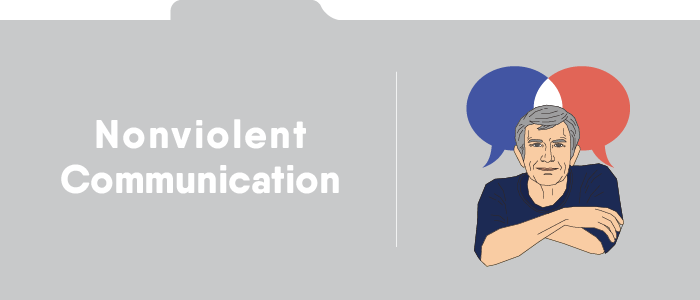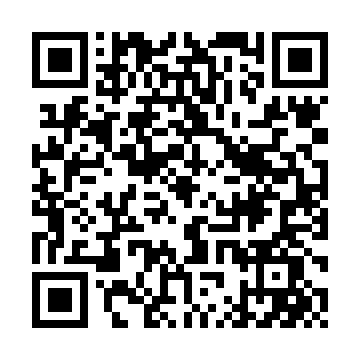
精選書評:愛的語言 - 非暴力溝通

作者:Marshall Rosenberg
出版社:Puddle Dancer Press
中譯本:《愛的語言:非暴力溝通》,光啟文化
• 本書以不同觀點探討人際溝通,強調同理心的建立
• 不只教你如何說話,更教你如何聽懂彼此的需求
• 本書提供的溝通手段適用於各種文化
預估閱讀時間:03:55
文章難度: ★★★☆☆
"The world has achieved brilliance without conscience.
Ours is a world of nuclear giants and ethical infants…
If we continue to develop our technology without wisdom or prudence,
our servant may prove to be our executioner."
「世界科技發達,卻喪失良心
這是一個核武像巨人,道德卻像嬰兒的世界…
如果我們繼續用這種缺乏智慧和謹慎的方式發展科技,
原先用來服務人類的發明,將成為殺害我們的劊子手」。
—Five-star general Omar Bradley 美軍五星上將奧爾瑪・布萊德利
The proliferation of Nonviolent Communication by Marshall Rosenberg is a versatile and practical set of solutions to this problem. Here you will find language and thought “tools” for developing a more effective and compassionate social approach, though one will quickly find that the skills within this book have grand applications that weren't immediately obvious.
Marshall Rosenberg 所著的《Nonviolent Communication》就是針對上述問題,一套多變又實用的解決方案。在書中你會發現,我們能藉由語言和一些「思考工具」,讓社交方法不但變得有效,且深具同理心。然而你可能也會發現,雖然這些技巧能有很棒的應用,卻不見得在各處都能馬上見效。
The four primary pieces of Nonviolent Communication are observations, feelings, needs, and requests. First, it teaches us to look at “observations” as separate from our evaluations or judgments. Next, the book shows how “feelings”, or emotions, can be viewed separately from thoughts (words, evaluations, judgments, etc.), and in this way viewed as something that shows us if we are experiencing our needs as unmet. After that, Rosenberg teaches “needs” to mean universal human needs, including sustenance, safety, love, or empathy. Finally, “requests” are intended to be a way of asking for a specific action which must be totally free of demand.
本書最主要的四個部分,分別是「觀察」、「感受」、「需要」、和「請求」。首先它告訴我們,「觀察」是和我們自身主觀的評估或判斷不同的;我們的「感受」也和想法(或言語、評估、判斷…等)有所區別。於是我們可以藉此判斷是否有些需求沒有被滿足。在此之後,作者Rosenberg告訴我們他所說的「需求」,是指全人類共同擁有的基本需求,包含生存養分、安全、愛、和同理。最後,「請求」所指的是一種禮貌提出要求,卻完全不帶索討態度的方式。
While it seems to be a book about effective communication, it also has crucial ideas about neither resisting or submitting to oppression by authority. It teaches the reader to avoid falling into “linguistic traps” that deny responsibility for our actions -- for example, do you think of yourself as being responsible for your own emotions, or do you think of other people as being responsible for your emotions?
雖然這看起來像是一本關於有效溝通的書,但本書仍包含一些關於面對權威,至關重要的想法,教你如何既不反抗權威,又不與之妥協。它會教導讀者如何不陷入對自身行為卸責的「語言陷阱」,例如:你認為你對自己的情緒負責嗎?或說,你認為別人該對你的情緒負責嗎?
Nonviolent Communication is short, and written in clear, plain, American-style English that is designed to be approachable to a wide audience. This book presents useful skills for negotiations, everyday communications, and navigating personal relationships, and they adapt well to being used outside of western cultures.
《Nonviolent Communication》非常簡短,且用清晰、單純的美式英語寫成,旨在讓更多的讀者都能夠理解。本書提供了許多有用的談判手段、日常溝通方法、甚至是人際關係的建立方式,而這些方法不僅局限於西方文化中,而能應用在各種文化裡。

文/ Max Power
本文收錄於英語島English Island 2018年12月號
訂閱雜誌
| 加入Line好友 |  |

 擔心生理健康,心理卻出問題?
擔心生理健康,心理卻出問題?